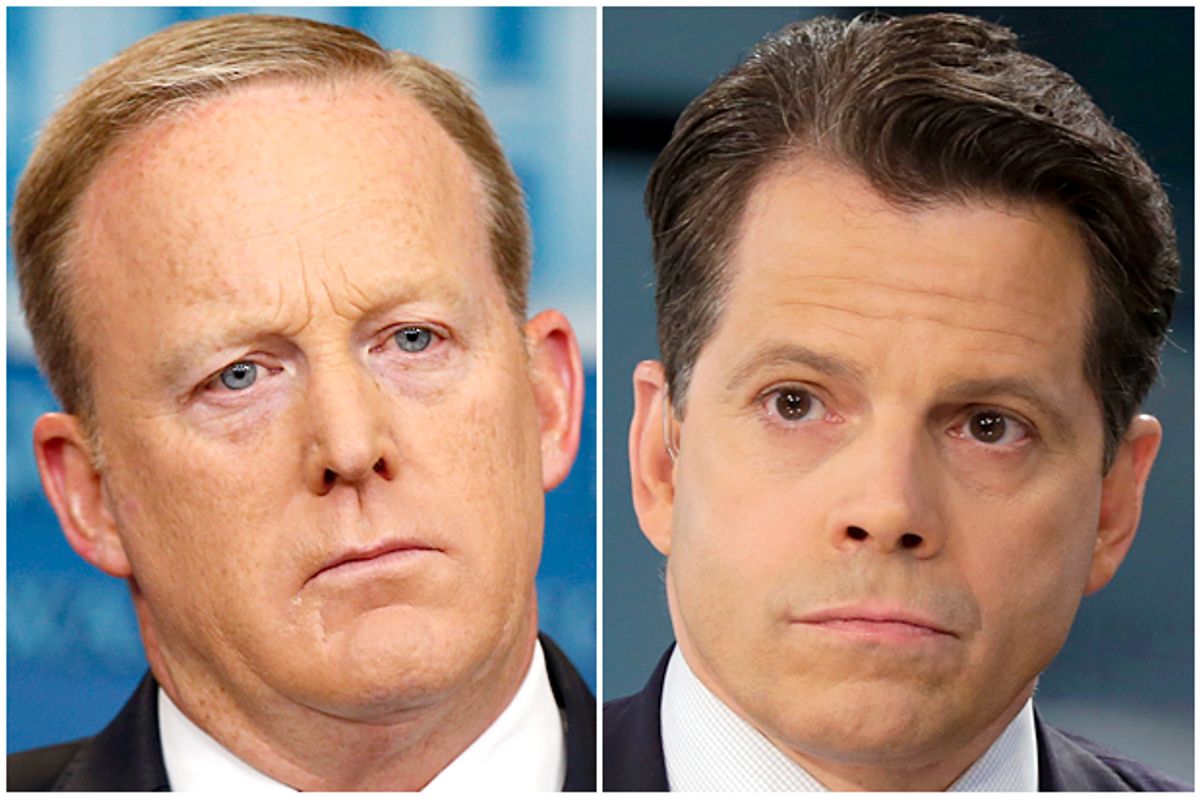As the first year of Donald Trump's presidency draws to an end, what lies ahead in the next 12 months is anyone's guess. In large measure, this is because many of the top positions in the Trump White House have seen historic levels of staff turnover.
According to Brookings Institution senior fellow Kathryn Dunn-Tenpas, the administration experienced a 34 percent turnover rate, far higher than past presidencies. In her tally, 21 of the 61 most senior staffers have either been fired, resigned, or been reassigned. By comparison, the White House with the next-highest number of staff departures was Ronald Reagan's, with a much lower (17) turnover rate at the end of 1981.
The dramatic staff turnover may partly owe itself to the fact that many of Trump's picks for top positions had no government experience, such as his departed chief strategist Steve Bannon or the very short-serving communications director Anthony Scaramucci. In other cases, such as that of White House press secretary Sean Spicer, Trump's famously disorganized and impromptu style proved too difficult to deal with. In the case of former national security adviser Michael Flynn, running afoul of the law seems to have been an issue.
Legal issues may also lead to the exit of one of Trump's top aides, his son-in-law and senior adviser, Jared Kushner. According to the New York Times, Trump's chief of staff John Kelly has purportedly discussed the idea of Kushner leaving the White House around New Year's. Kelly disputed those reports, however.
Yet for all the turmoil, plenty of people at the top of the White House have retained their positions, including senior policy adviser Stephen Miller, a true believer in Trump's populist-style campaign rhetoric which has thus far had almost no policy repercussions. Despite coming at politics from a very different place than the more centrist Kushner or the Christian conservatism of Mike Pence, Miller has managed to hang on as one of the very few top advisers who have stayed with Trump since his campaign days.
Miller's ability to keep the president's loyalty may be a big factor in 2018, especially in the early months when Trump's executive order repealing former president Barack Obama's Deferred Action for Childhood Arrivals (DACA) program, which allows some people who were brought to the country illegally to avoid deportation, goes into full effect. Democrats and pro-immigration Republicans have wanted to reach a deal to enable DACA participants to remain in the country; thus far, Trump, with urging from Miller and Attorney General Jeff Sessions, has resisted. Both aides have been pushing Trump to offer a deal where DACA participants get to stay in the country in exchange for Democratic cooperation on the president's much-ballyhooed border wall.
Trump stuck to that position in a Friday tweet:
House Minority Leader Nancy Pelosi and her Senate counterpart, Chuck Schumer will join Republican congressional leaders next Wednesday to discuss DACA and a possible deal to avoid a government shutdown.
“We're not going to negotiate through the press and look forward to a serious negotiation at Wednesday’s meeting when we come back,” Pelosi spokesman Drew Hammill said in a statement.



Shares